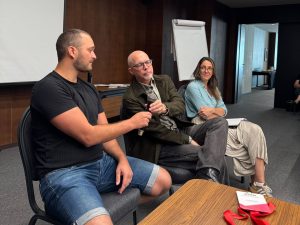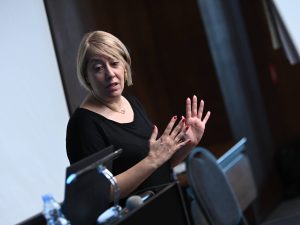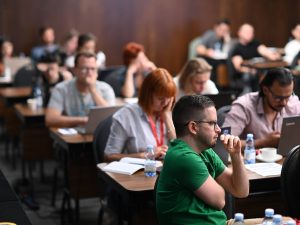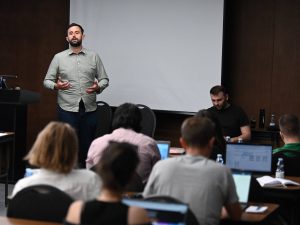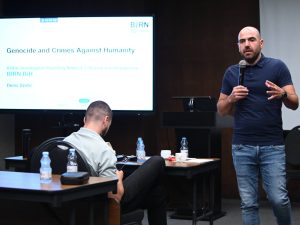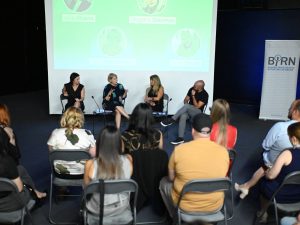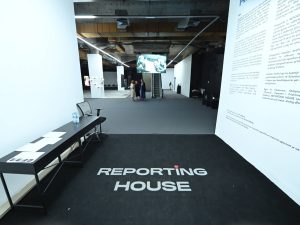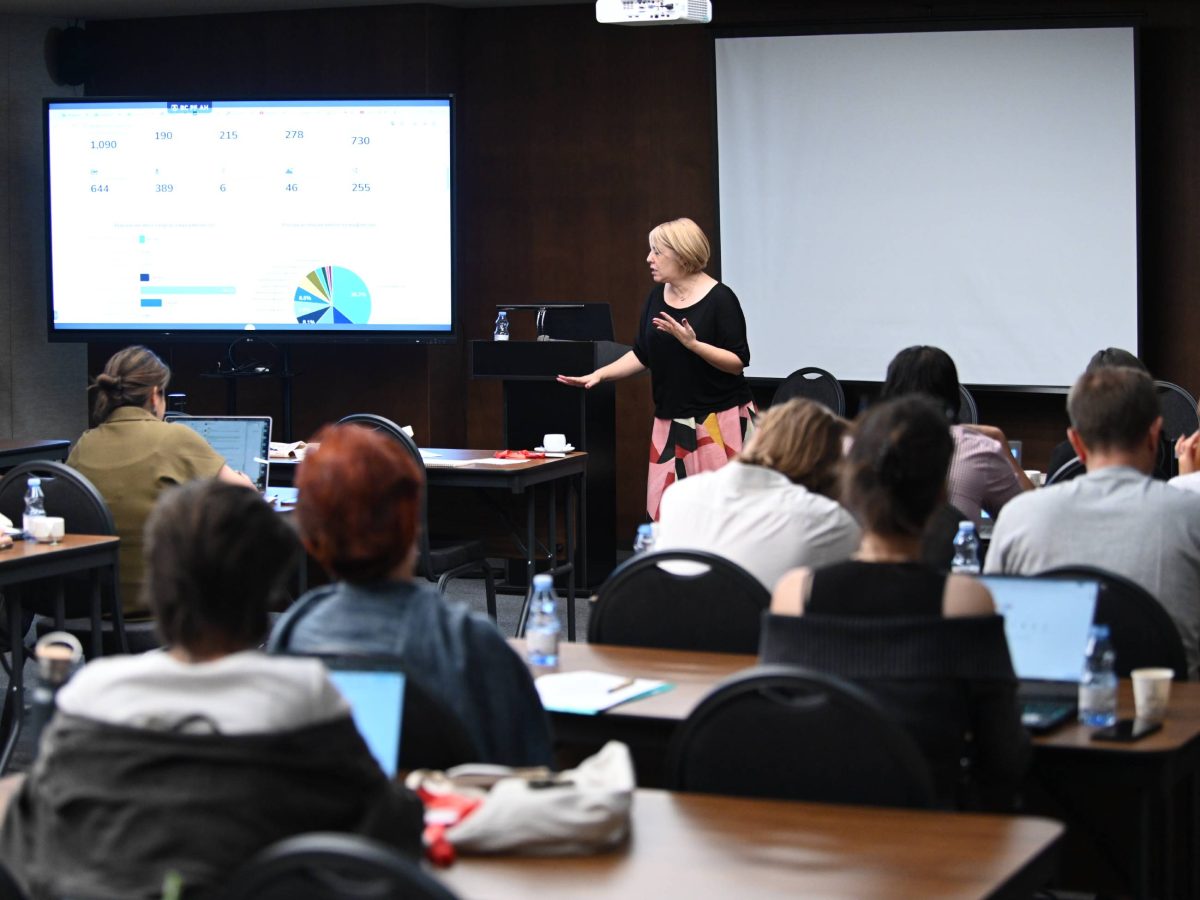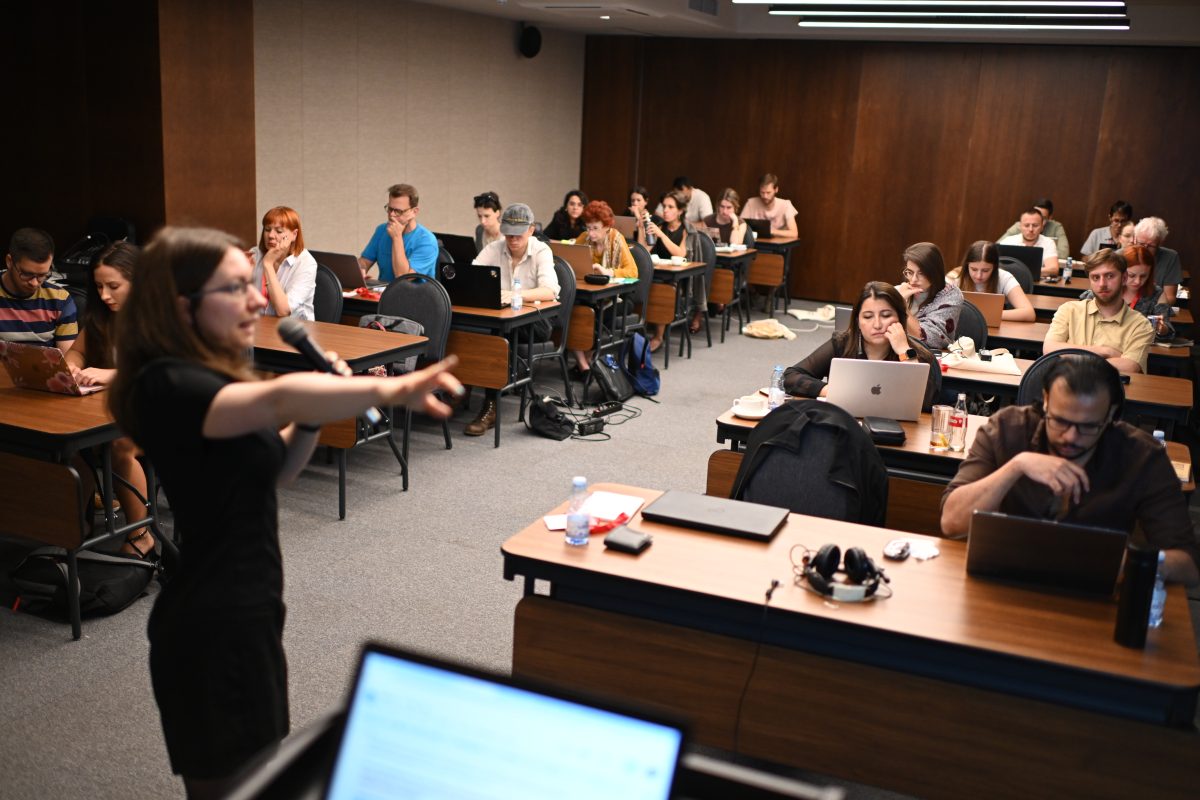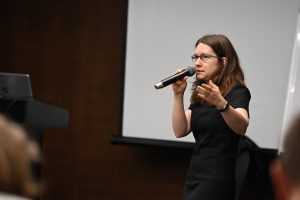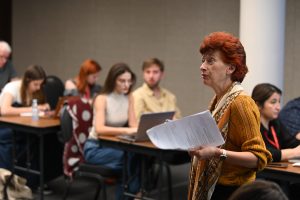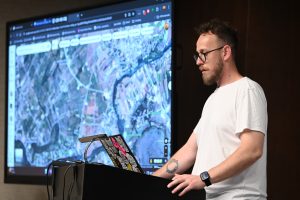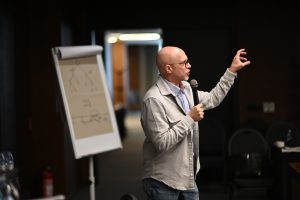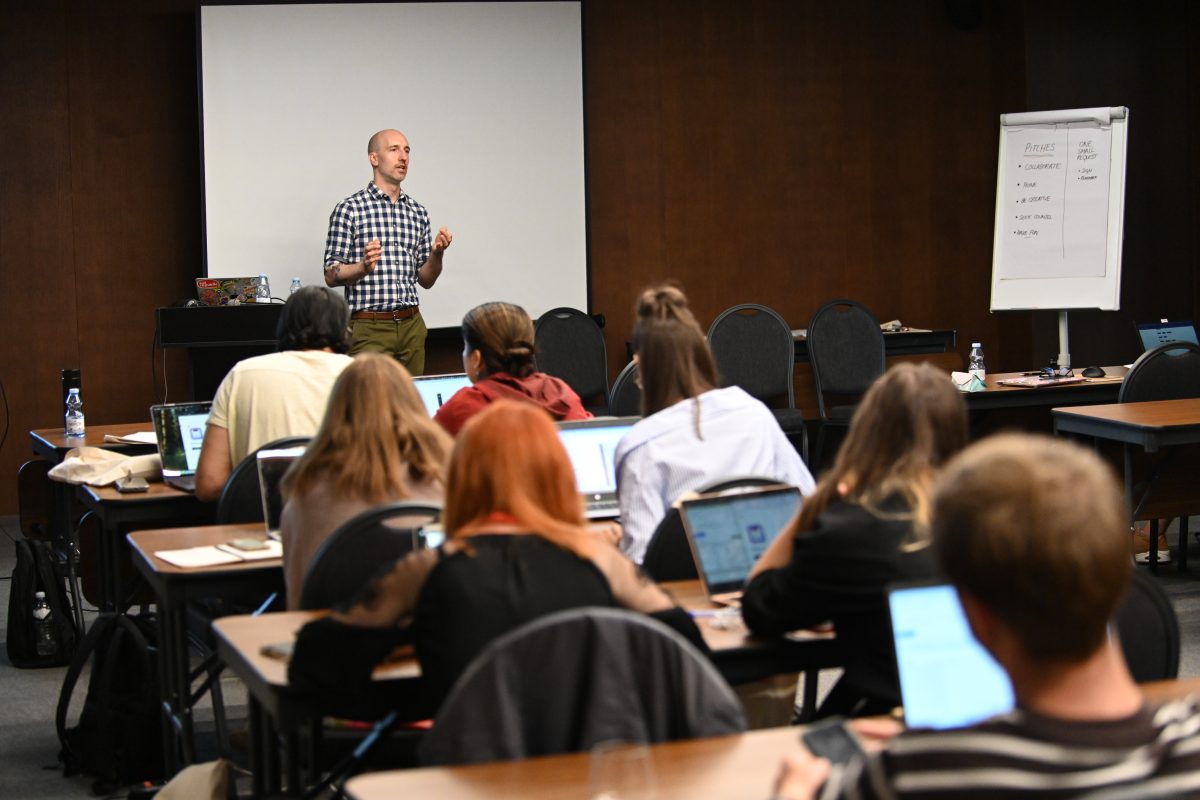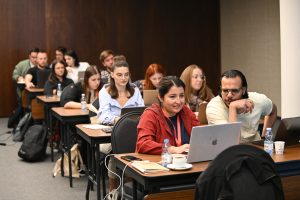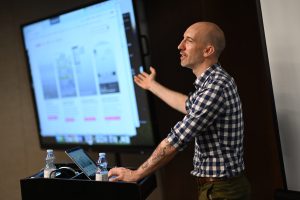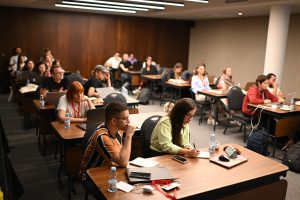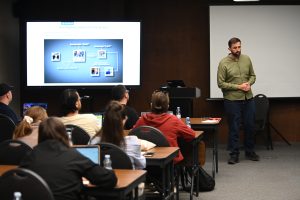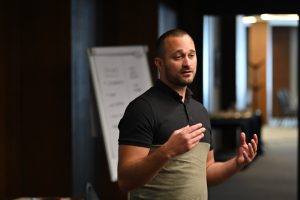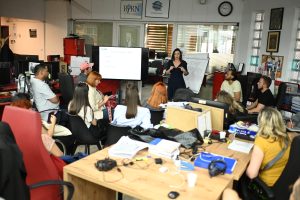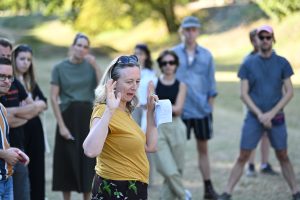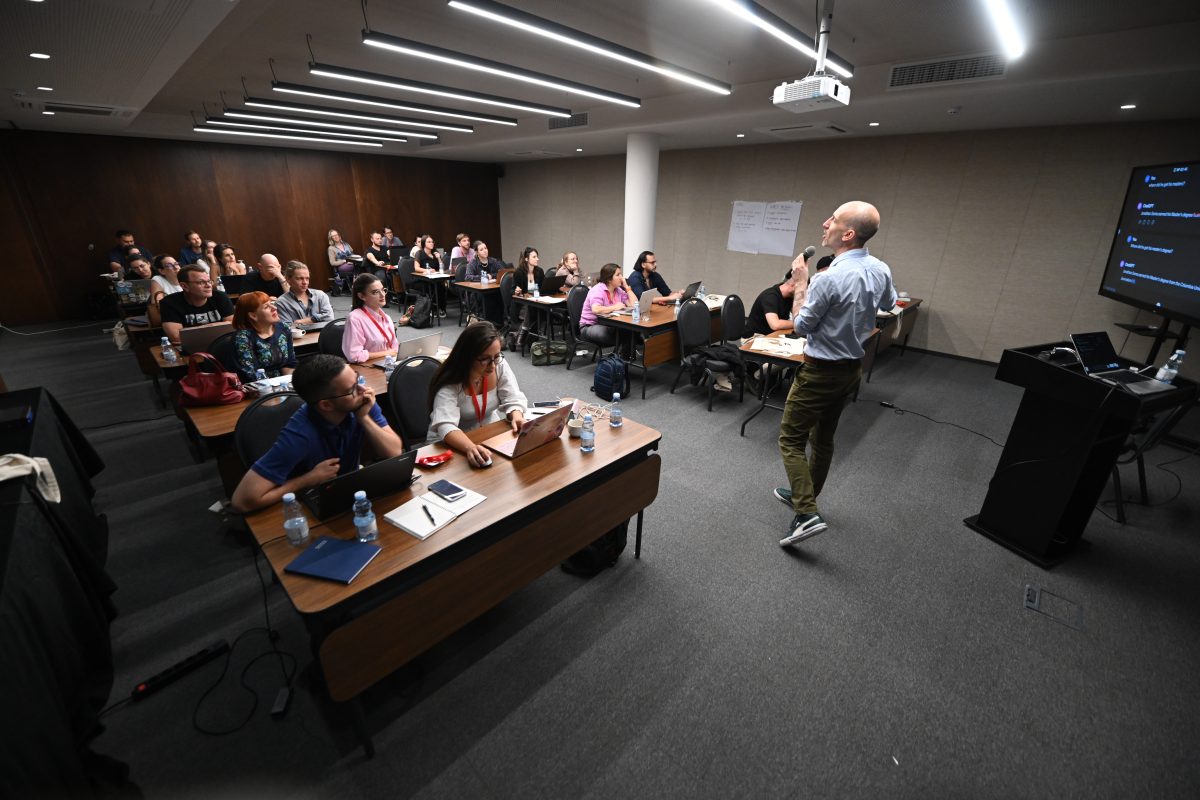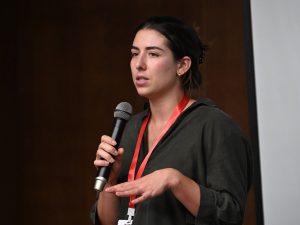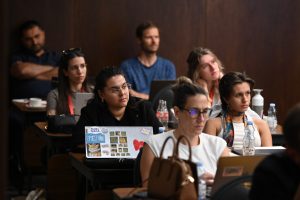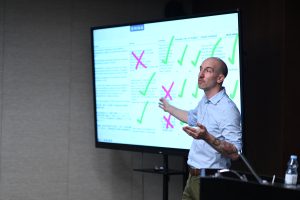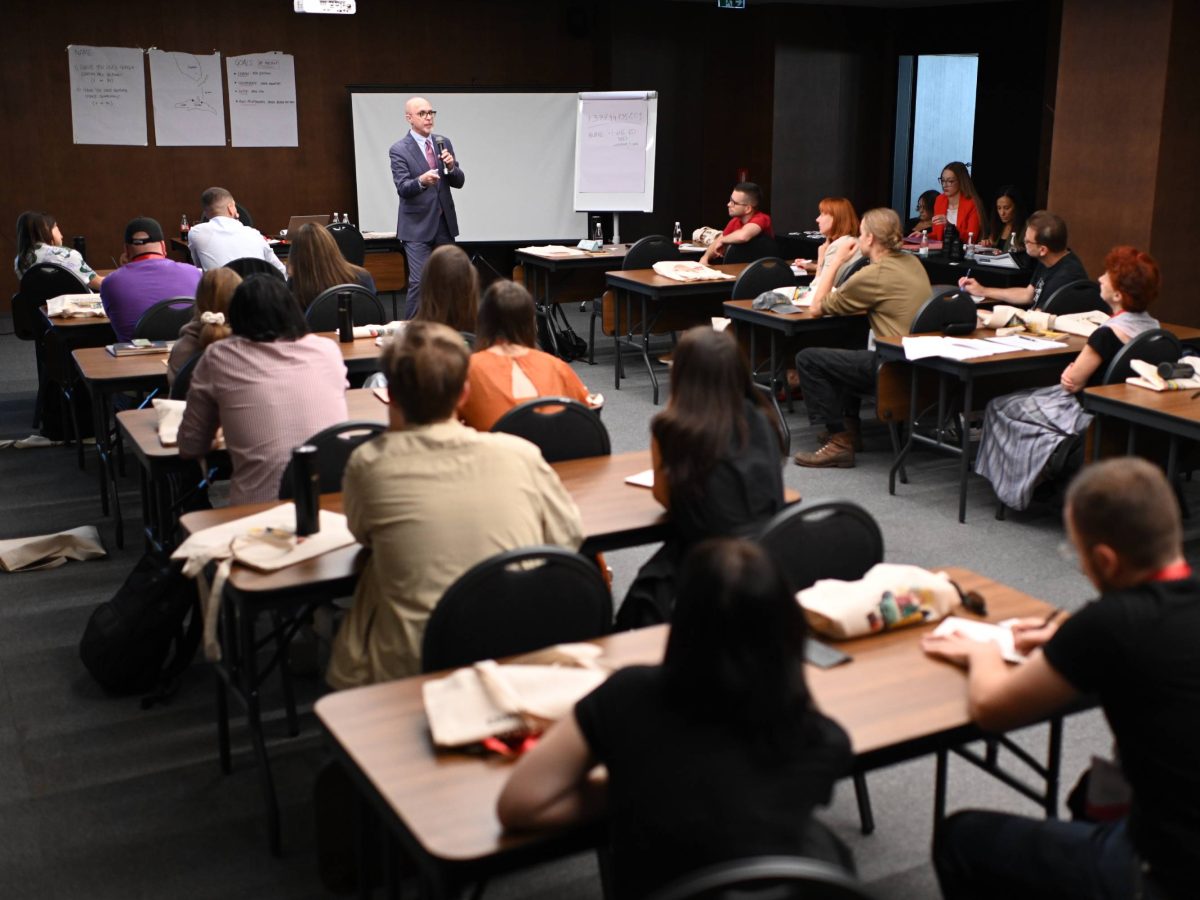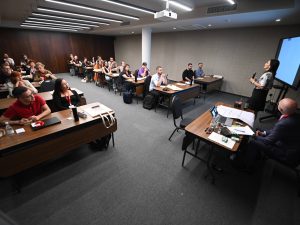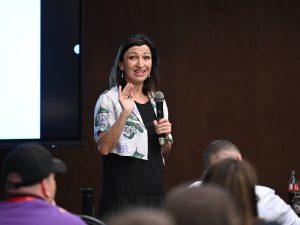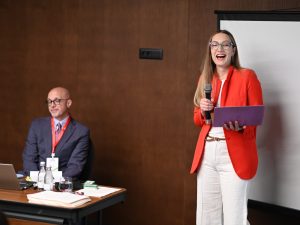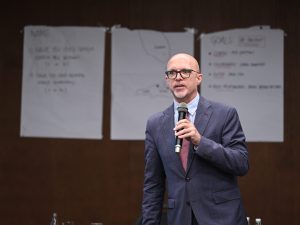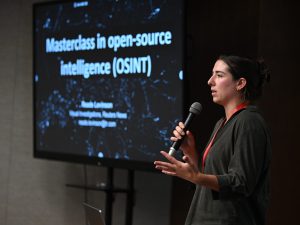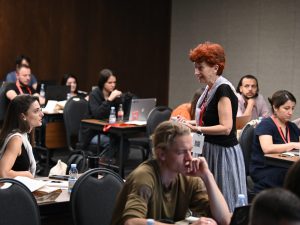By Vuk Tesija
This August, Pristina becomes the epicentre of investigative journalism as the 15th BIRN Summer School of Investigative Reporting takes place between August 25 to 30, 2025.
Over the course of six days, 30 journalists will dive deep into the art of investigative reporting, guided by some of the most acclaimed editors and award-winning journalists.
Whether you’re chasing your next big story or aiming to take your reporting to the next level, this is where promising investigative journalists connect with leading professionals in the field.
Pristina awaits. Are you ready to learn more about investigative journalism?
Journalists will sharpen their investigative skills under the guidance of award-winning editors, data experts, and seasoned reporters. The lead trainer for the week is Blake Morrison, Investigative Projects Editor at Reuters in New York, whose Pulitzer-nominated stories have driven policy changes and criminal convictions. From shaping story ideas to structuring impactful narratives, Blake will work closely with participants throughout the programme.
Investigative techniques using data will be a strong component of the curriculum. Jonathan Soma, Professor of Data Journalism at Columbia University and director of its Data Journalism and Lede Programs, will teach advanced methods for analysing and visualising data, and explore how artificial intelligence is transforming the way we investigate complex stories.
Participants will also look at how to access and investigate public records, particularly in the areas of environmental and climate reporting. Alexenia Dimitrova, an ICIJ member, Pulitzer-winning journalist, and author of five acclaimed books, will share her open-source intelligence (OSINT) expertise and demonstrate how public documents and datasets can be turned into compelling investigations.
Further developing OSINT skills, Reade Levinson of Reuters will lead practical exercises in geolocation and satellite image analysis, helping participants verify information and uncover wrongdoing with digital tools used in leading international newsrooms.
Pristina, a city full of energy, culture, and contrasts, offers the perfect setting to strike that vital balance between intense investigative work and self-care. From lively cafés and historic streets to vibrant debates in the classroom, the city invites you to both dig deep and breathe out.
Recognising that powerful journalism depends on journalists’ well-being, the Summer School will also include sessions on mental health, resilience, and communication. In partnership with The Self-Investigation foundation, Emma Thomasson, a journalist and certified coach, will lead training on managing conflict, stress, and burnout — equipping participants with strategies to sustain their careers in a high-pressure profession.
Set in the heart of Kosovo, the Summer School offers not only high-calibre training but also a meaningful connection to the region’s post-conflict context. Leading the local dimension of the programme is Jeta Xharra, Director of BIRN Kosovo and one of the region’s most prominent investigative journalists. Drawing on her work in transitional justice and her role as anchor of Life in Kosovo, Jeta will guide participants through the ethical and practical challenges of uncovering hidden truths in transitional societies. Participants will also visit The Reporting House and Kallxo.com, gaining first-hand insight into one of Southeast Europe’s most active anti-corruption platforms.
Beyond the workshops and lectures, BIRN will also provide dedicated space for networking, collaboration, and community building, because some of the best stories start with a shared coffee or a cross-border connection made in moments between the hard work.
In Pristina, you won’t just grow as a journalist — you’ll connect with a community that shares your passion!
As every year, BIRN is providing 30 full scholarships for selected participants. Journalists from the following countries are eligible to apply: Albania, Bosnia and Herzegovina, Bulgaria, Croatia, Czech Republic, Georgia, Greece, Hungary, Kosovo, Montenegro, North Macedonia, Ukraine, Poland, Romania, Russia, Serbia, Slovakia, Turkey, Tajikistan and Uzbekistan. This will cover a full stipend for participation in the programme, accommodation, meals, as well as transportation expenses of up to €200.
In addition to training, editorial support, and mentorship, BIRN will offer selected participants funding through our Investigative Initiative Story Fund to support the development and production of their investigative stories.
Participants are expected to arrive at the School with an initial idea for an investigative story, which they will develop further during the week in Pristina.
Throughout the sessions, participants will receive mentoring and guidance to refine their story proposals. By the end of the week, each participant or cross-border team will pitch their investigative story idea to a jury composed of BIRN editors and trainers. The best pitches will be awarded with editorial guidance, financial support, and publication opportunities to carry out the investigation in the months following the BIRN Summer School.
Limited spots are also available for international participants who want to take part in the training and cover their own costs. They need to cover an all-inclusive fee of €1,500, covering full board at the Mercure Hotel in Pristina, where the BIRN Summer School is taking place. No extra charges are requested for tuition.
